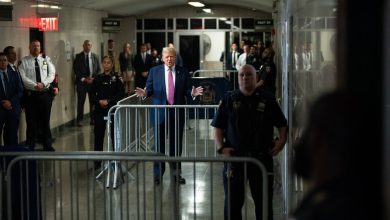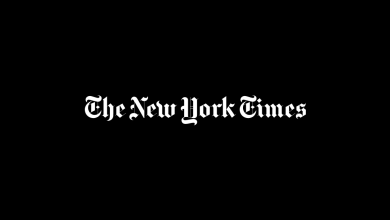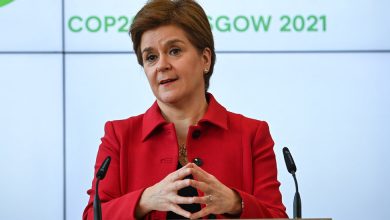With Deal for Twitter, Musk Lands a Prize and Pledges Fewer Limits

Elon Musk struck a deal on Monday to buy Twitter for roughly $44 billion, in a victory by the world’s richest man to take over the influential social network frequented by world leaders, celebrities and cultural trendsetters.
Twitter agreed to sell itself to Mr. Musk for $54.20 a share, a 38 percent premium over the company’s share price this month before he revealed he was the firm’s single largest shareholder. It would be the biggest deal to take a company private — something Mr. Musk has said he will do with Twitter — in at least two decades, according to data compiled by Dealogic.
“Free speech is the bedrock of a functioning democracy, and Twitter is the digital town square where matters vital to the future of humanity are debated,” Mr. Musk said in a statement announcing the deal. “Twitter has tremendous potential — I look forward to working with the company and the community of users to unlock it.”
The blockbuster agreement caps what seemed an improbable attempt by the famously mercurial Mr. Musk, 50, to buy Twitter — and immediately raises questions about what he will do with the platform and how his actions will affect online speech globally.
The billionaire, who has more than 83 million followers on Twitter and has romped across the service hurling gibes and memes, has repeatedly said he wants to “transform” the platform by promoting more free speech and giving users more control over what they see on it. By taking the company private, Mr. Musk could work on the service out of sight of the prying eyes of investors, regulators and others.
Yet scrutiny is likely to be intense. Twitter is not the biggest social platform — it has more than 217 million daily users, compared with billions for Facebook and Instagram — but it has had an outsize role in shaping narratives around the world. Political leaders have made it a megaphone, while companies, celebrities and others have used it to hone images and build brands.
In recent years, Twitter has also become a target of criticism, as some users spread misinformation and other toxic content on the service. Former President Donald J. Trump frequently turned to Twitter to insult and inflame, until it barred him after the Jan. 6 riot at the Capitol last year. The company has repeatedly created policies on the fly to deal with unexpected situations.
Mr. Musk himself has had a rocky relationship with online speech. This year, he tried to quash a Twitter account that tracked his private jet, citing personal and safety reasons. And he has gotten into trouble with regulators over his tweets.
On Monday, he tweeted that he hoped his worst critics would remain on Twitter, because “that is what free speech means.” He added in his statement that he hoped to increase trust by making Twitter’s technology more transparent, defeating the bots that spam people on the platform and “authenticating all humans.”
Bridget Todd, a director at UltraViolet, a women’s rights organization, said Mr. Musk’s deal could be treacherous for online speech because he might not be in favor of Twitter’s community standards and barring users who violated those standards.
Read More on Elon Musk’s Bid for Twitter
- A Digital Citizen Kane: The mercurial billionaire wants to recast Twitter in his image, in echoes of the 19th-century newspaper barons.
- Elusive Politics: Mr. Musk is often described as a libertarian, but he has not shrunk from government help when it has been good for business.
- A Problem for Trump: Mr. Musk’s plan for a Twitter takeover adds to the challenges facing the former president’s nascent Truth Social network.
“This is a massively slippery slope,” she said.
In Washington, Republicans, who have long accused Twitter of censoring their views, cheered Mr. Musk’s deal.
“I am hopeful that Elon Musk will help rein in Big Tech’s history of censoring users that have a different viewpoint,” Senator Marsha Blackburn of Tennessee said in a tweet.
Mr. Trump told Fox News on Monday that he would stick with posting on his own social network, Truth Social. “I am not going on Twitter,” he said, but added that he hoped “Elon buys Twitter, because he’ll make improvements to it.”
Democrats were restrained on the deal. Jen Psaki, the White House press secretary, declined to comment on Twitter’s sale specifically but said that President Biden “has long been concerned about the power of large social media platforms” and that they should be “held accountable for the harms that they cause.” She said Mr. Biden supported changes to online-speech and antitrust laws.
Beyond speech issues, Twitter faces questions about its business. For years, the company has struggled to gain new users and keep others returning. Its advertising business, which is the main way Twitter makes revenue, has been inconsistent. Twitter has not turned a profit for eight of the last 10 years.
Last year, the company lost $493 million on revenue of $5.57 billion. In contrast, Meta, the company formerly known as Facebook, had profits of $39 billion and revenue of $118 billion last year.
Twitter, which went public in 2013, has also had a tumultuous corporate history. It has repeatedly dealt with board dysfunction and drama with its founders, and was courted by other interested buyers in the past, including Disney and Salesforce. In 2020, the activist investment firm Elliott Management took a stake in Twitter and called for Jack Dorsey, one of its founders, to resign as chief executive. Mr. Dorsey stepped down



